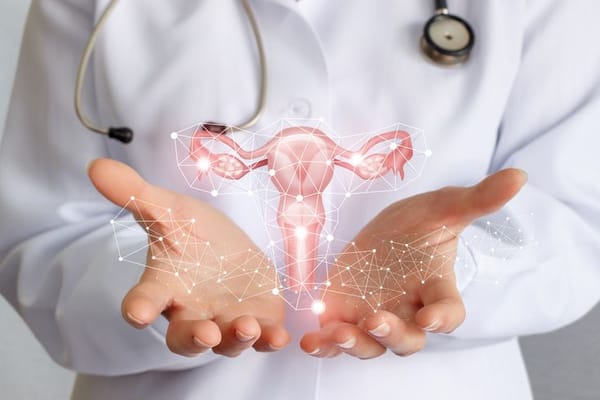Poly Cystic Ovarian Syndrome (PCOS) is a hormonal disorder that affects many women of reproductive age. It can cause a range of symptoms, including irregular periods, weight gain, and acne. In this guide, we'll explore the causes and treatment options for PCOS, as well as lifestyle changes that can help manage the condition.
What is Poly Cystic Ovarian Syndrome (PCOS)?
Poly Cystic Ovarian Syndrome (PCOS) is a hormonal disorder that affects the ovaries. Women with PCOS have higher levels of androgens (male hormones) than normal, which can interfere with the development and release of eggs from the ovaries. This can lead to irregular periods, difficulty getting pregnant, and other symptoms. PCOS is a common condition, affecting up to 10% of women of reproductive age.
Symptoms of PCOS.
The symptoms of PCOS can vary from woman to woman, but some of the most common include:
- Irregular periods: Women with PCOS often have infrequent, irregular or prolonged menstrual cycles.
- Excess androgen production: Androgens are male hormones that are also present in females, but women with PCOS tend to produce higher levels of androgens. This can lead to symptoms such as acne, excessive hair growth (hirsutism), and male-pattern baldness.
- Polycystic ovaries: The ovaries of women with PCOS can become enlarged and contain small cysts, which can be seen on an ultrasound.
- Insulin resistance: Many women with PCOS have insulin resistance, which can lead to high levels of insulin in the body and increase the risk of developing diabetes.
- Weight gain: PCOS is often associated with weight gain, particularly around the abdomen.
Other symptoms of PCOS can include fatigue, mood swings, and difficulty getting pregnant. However, not all women with PCOS experience all of these symptoms, and the severity of symptoms can vary from person to person. If you are experiencing any of these symptoms, you must talk to your doctor or healthcare provider for a proper diagnosis and treatment plan.
Causes of PCOS.
The exact cause of PCOS, or Polycystic Ovary Syndrome, is not yet fully understood, but it is believed to be a combination of genetic, hormonal, and environmental factors. Some potential causes or contributing factors to PCOS include:
- Insulin resistance: Insulin is a hormone that regulates blood sugar levels in the body. Insulin resistance occurs when the body's cells become less responsive to insulin, leading to higher levels of insulin in the bloodstream. This can contribute to the production of androgens, which are male hormones that can disrupt ovulation and lead to PCOS symptoms.
- Hormonal imbalances: Women with PCOS often have higher levels of androgens and luteinizing hormone (LH) in their bodies, and lower levels of follicle-stimulating hormone (FSH). These imbalances can disrupt the menstrual cycle and cause cysts to form on the ovaries.
- Genetics: PCOS appears to run in families, suggesting that there may be a genetic component to the disorder. However, specific genes or genetic mutations that contribute to PCOS have not yet been identified.
- Inflammation: Some researchers believe that inflammation in the body may play a role in the development of PCOS.
- Environmental factors: Exposure to endocrine-disrupting chemicals (EDCs), such as bisphenol A (BPA), may contribute to the development of PCOS. EDCs can interfere with hormone production and signaling in the body.
It is important to note that not all women with PCOS have the same underlying causes or risk factors.
Diagnosis and Treatment of PCOS.
PCOS can be diagnosed through a combination of physical exams, medical history, and blood tests to check hormone levels. Treatment options for PCOS vary depending on the individual and their symptoms but may include lifestyle changes such as diet and exercise, medications to regulate hormones and insulin levels, and in some cases, surgery. It is important for women with PCOS to work closely with their healthcare providers to develop a personalized treatment plan.
Lifestyle changes to manage PCOS.
Lifestyle changes can be an effective way to manage PCOS symptoms. This may include following a healthy diet and exercise plan to maintain a healthy weight, as obesity can worsen PCOS symptoms. Additionally, reducing stress levels through relaxation techniques such as yoga or meditation can also be helpful. Quitting smoking and limiting alcohol intake can also improve overall health and reduce the risk of complications associated with PCOS. It is important to work with a healthcare provider to develop a personalized plan for managing PCOS symptoms.







